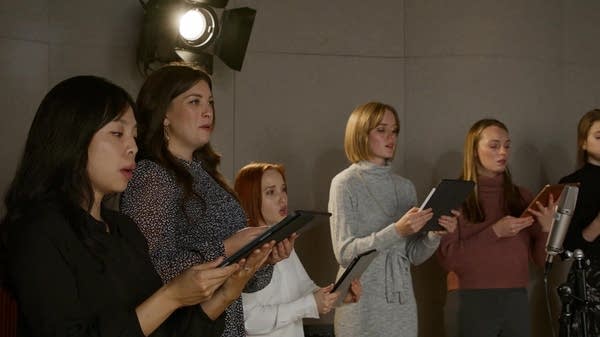If you happened to be at McDonald's in the western part of Pennsylvania in the early '80s, there's a good chance you may have seen a group of schoolboys spill out of a tour bus gleefully singing their own version of Waylon Jennings's "Mammas Don't Let Your Babies Grow Up to Be Cowboys." If you listened closely you would note that "cowboys" had been changed to "choirboys."
This was the Minnesota Boychoir, you see, and they were pint-sized rock stars living life on the road. I was one of these choirboys. Some called us angels. Some called us devils. Oddly, no one called us musicians.
The Minnesota Boychoir is an internationally recognized choir that has been performing since 1962. They've visited five different continents and over a dozen states. They are, as the title suggests, an all-male choir and until recently accepted boys between the ages of 7 and 13; now, boys' ages range up to 18.
I was recruited into the choir after performing too well in music class. My music teacher loved my voice, and she urged me to audition. I had a crush on a girl named Christie. She really liked singing in the choir, so it seemed reasonable that Christie might be impressed if I became a member of a prestigious choir.
I had no previous musical training. I'm sure I sang as much as any other Minneapolitan public school kid, but nothing ever stuck. I was no prodigy, just a kid who had the voice "of an angel." Several times a week we would go to choir practice that included physical exercises, vocal exercises and the endless repetition of music in Latin, German and French.
In retrospect, I'm awestruck by the sheer hubris required to ask prepubescent boys to perform musical works that have remained meaningful for centuries. Many of us had Velcro shoes because we couldn't be bothered to tie our laces, but perform Ave Maria at a professional level? No problem.
There were as many reasons as there were choirboys that this kind of thing shouldn't have worked — and yet, not only did we sing the Schubert, we performed it from memory. The fact of this group of miscreants trying to master this music was absurd, but we did get it right, most of the time, and that speaks to the genius of the music.
I can't remember much of the music I memorized for these performances. Once, we were asked to perform with the Minnesota Orchestra to bring to life Mozart's Requiem. Preparations for this were grueling and the performances themselves required heroic discipline for our preteen selves. We were not allowed to move, itch, or stretch during the entire program.
During the first performance I understood what it was all for. "Dies Irae," with its epic swaths of turmoil, engrossed a kid who already had a taste for the melodramatic. The halting movement and profound swells of "Sanctus" nearly broke me, and I got goosebumps.
I would never admit it to my fellow n'er-do-wells, but I knew it was worth it. We were doing something very few could ever really experience. The weightlessness of being inside of a piece of music written several generations ago. The nearly transcendent experience of feeling your leg cramp up while reaching for a note you had no hope of making in a year or two.
I don't know if Christie ever saw one of our shows. This didn't really matter, though. In those endless hours of rehearsal, the interminable moments of silence on stage, I found something that washed that small crush far into the distance. I could feel music's power to suggest ideas and emotions that were out of reach of other arts. This music was something that could literally make you tremble.
We weren't angels, but there were moments when we could've touched them.
T.A. Wardrope writes fiction and non-fiction for a variety of outlets because most of his musical talent left him when singing soprano was no longer an option. His novel Arcadian Gates is available from Blastgun Books.
Interested in writing about classical music for American Public Media? Have a story about classical music to share? We want to hear from you!
Love the music?
Show your support by making a gift to YourClassical.
Each day, we’re here for you with thoughtful streams that set the tone for your day – not to mention the stories and programs that inspire you to new discovery and help you explore the music you love.
YourClassical is available for free, because we are listener-supported public media. Take a moment to make your gift today.











